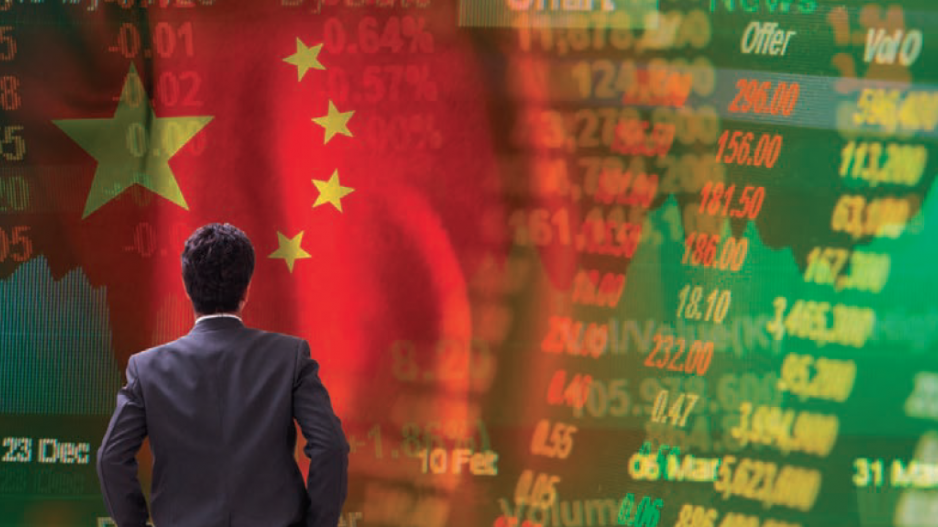Hong Kong stocks declined on the first trading day after Easter holidays, breaking the 24,000 point threshold for the first time in a month, as financial stocks tumbled amid tightened regulations and lingering geopolitical uncertainties in North Korea and France.
The Hang Seng Index closed 1.4 per cent or 337.1 points down at 23,924.5, catching up with the losses in the mainland market on Friday and Monday when the Hong Kong market was closed for public holidays. The Hang Seng China Enterprises Index, or the H-share Index, lost 1.6 per cent and fell to a two-month low of 10,043.5.
Meanwhile equities tumbled in the mainland stock market to the lowest level in two months.
The Shanghai Composite Index extended its losing streak for three days in a row, and was down 0.8 per cent to 3,196.7. The benchmark closed below the 3,200 threshold for the first time since February 10. The CSI 300 Index, which tracks large companies in Shanghai and Shenzhen, shed 0.5 per cent to 3,462.7, the lowest level so far this month. The Shenzhen Component Index lost 0.4 per cent to 10,411.4, while the Nasdaq-like ChiNext fell 1.1 per cent to 1,848.2.
Financial sector stocks were the major losers on Tuesday amid tightened regulations and probes on top regulatory officials, said Hanna Li Wai-han, strategist at UOB Kay Hian Hong Kong.
“The China Banking Regulatory Commission has been tightening banking supervision, while the probes on financial regulatory leaders added to investor concerns.”
Following the investigation on former China Insurance Regulatory Commission chairman Xiang Junbo, Chinese media Caixin and Caijing reported on Friday that Yang Jiacai, the assistant chairman of the CBRC was also “out of contact”, sparking discussions that more senior officials might be involved in the investigations.
China Minsheng Banking Corp shares shed 2.8 per cent to HK$7.9, the lowest level since late July last year, after Caixin reported that a head of its Beijing branch is under police custody, amid market rumours that the branch had forged bank notes worth 3 billion yuan (US$435.5 million).
China Construction Bank, one of the most traded H shares, fell 1.9 per cent to HK$6.14.
China Life Insurance Company shed 2.2 per cent to HK$22.55, the lowest level since early February.
In the mainland, stocks of newly listed companies or those paying exceptionally large numbers of bonus shares to ramp up share prices, continued to drop as China Securities Regulatory Commission pledged to clamp down on “malicious manipulation”.
“Investors are dumping shares to book profit, as they are worried about the regulatory risks.”said Fu Chuangui, an analyst with Dongguan Securities.
“External environment is full of uncertainties too. The lingering geopolitical risks in North Korea and the presidential election in France during the upcoming weekend have dampened investors’ willingness to enter the stock market,” Li said.
China Resources Power Holdings Company was the biggest loser among blue-chips in Hong Kong with its shares falling 4.3 per cent to HK$13.9, followed by China Unicom, which fell 4.1 per cent to HK$10.2.
Hong Kong broadcaster i-Cable Communications was suspended from trading, pending the release of an announcement involving “inside information”. i-Cable Communications has taken an “important step” towards carrying on the business, Stephen Ng Tin-hoi, chairman of its parent company Wharf Holdings said in an internal circular on Tuesday.
Rival Hong Kong Television Network attracted fund inflows, ending 4.5 per cent higher at HK$1.64.
Among sharp movers in the mainland, liquor maker Kweichow Moutai Co surged 2.2 per cent to end at 404.65 yuan, a new high while its peer Wuliangye Yibin’s shares rose 2.1 per cent.
Read the original article on the South China Morning Post.




